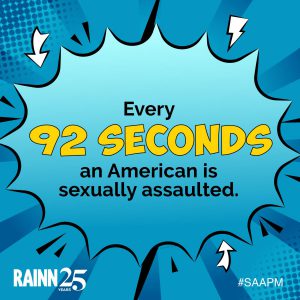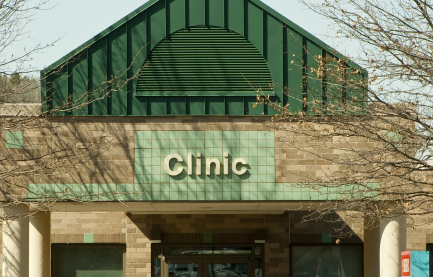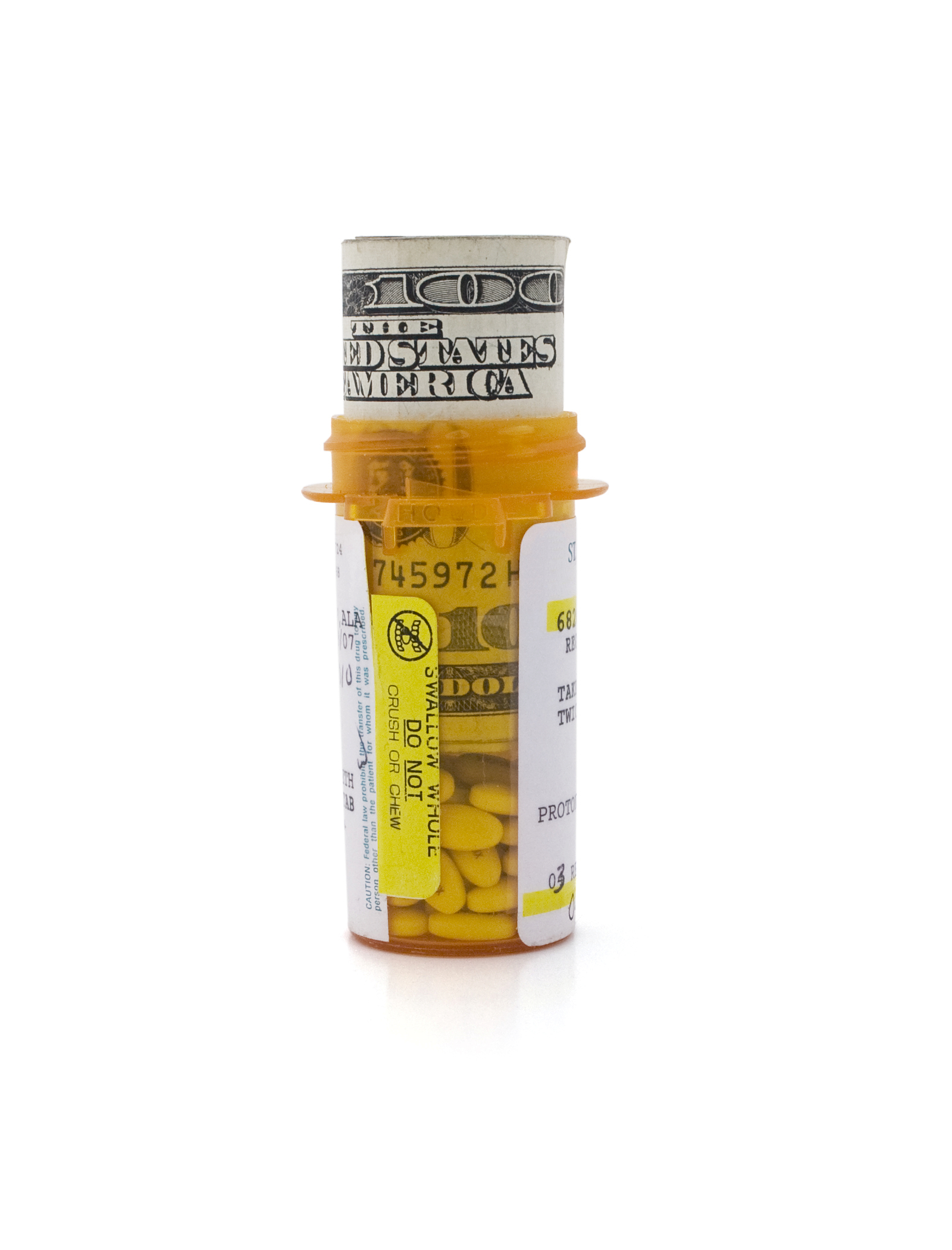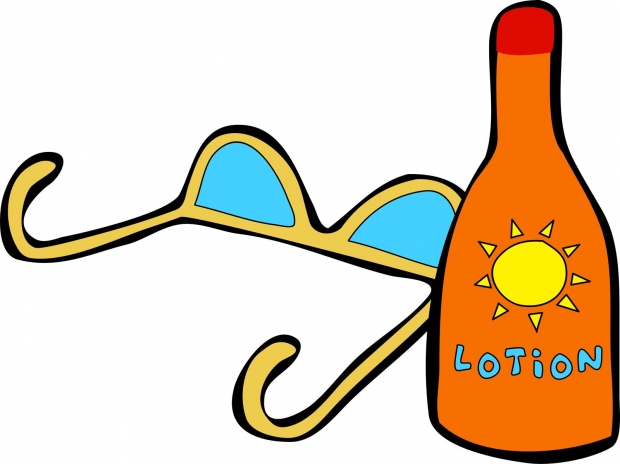Last Updated on January 30, 2020
CONTENT WARNING: This blog discusses rape and other forms of sexual violence.
 Since 2001, April is recognized as Sexual Assault Awareness and Prevention Month. Over the past year and half, the #MeToo movement has grown to bring sexual violence, abuse, and toxic behavior into the forefront of American culture, but there is still much misinformation and stigma to combat to ensure the health and safety of everyone affected. Rape is the most under-reported crime, with 63% of sexual assaults not being reported to police. Despite misconceptions, the prevalence of false reporting is low — between 2-7%. The consequences of sexual assault reach far into the lives of survivors, families, and communities and have a major effect on public health.
Since 2001, April is recognized as Sexual Assault Awareness and Prevention Month. Over the past year and half, the #MeToo movement has grown to bring sexual violence, abuse, and toxic behavior into the forefront of American culture, but there is still much misinformation and stigma to combat to ensure the health and safety of everyone affected. Rape is the most under-reported crime, with 63% of sexual assaults not being reported to police. Despite misconceptions, the prevalence of false reporting is low — between 2-7%. The consequences of sexual assault reach far into the lives of survivors, families, and communities and have a major effect on public health.
Victims of sexual harassment and assault are often thought of as women, but men can also be affected. Statistically, one in five women and one in 67 men are raped at some point in their lives. Nearly 50% of women and 20% of men experience sexual violence other than rape.
Vulnerable communities are disproportionately affected by sexual violence:
- 44% of lesbains and 61% of bisexual women compared to 35% of heterosexual women;
- 40% of gay men and 47% of bisexual men compared to 21% of heterosexual men;
- 47% of transgender people are sexually assaulted at some point in their lives.
People of color also experience an unequal level of sexual violence in the United States:
- 29.1% of black women, 12% of black men;
- 37.5% of Native American women, 12.4% of Native American men;
- 23.4% of Hispanic/Latina women, 7.4% of Hispanic/Latino men;
- 30.2% of mixed race women, 9% of mixed race men;
- compared to 24.8% of white women, 7.5% of white men.
Sex workers (escorts, exotic dancers, dominatrixes, pornographic actors, phone sex operators, nude models, etc.) are often ignored when it comes to sexual violence and have their jobs conflated to sex trafficking on a policy level, endangering people working consensually in the sex industry and their livelihoods. By omitting the sex worker community from conversations about sexual assault prevention and rape culture, it perpetuates the stigma and culture of violence that allows violence to be perpetrated against them.
People with a history of being victimized by sexual harassment or assault are three times more likely to have depression and twice as likely to have anxiety. Trauma can happen whether or not an individual is physically harmed, and can have lasting effects on one’s emotional or physical wellbeing. A recent study from the Journal of the American Medical Association (JAMA) found women with a history of sexual assault have higher blood pressure and poorer sleep. Unwanted sexual attention that may appear “complimentary” on the surface can affect a person’s self-esteem, body image, or sense of self-worth.
Accompanying body image and self-esteem issues, sexual harassment can lead to disordered eating or lack of appetite. Harassment can take pleasure out of experiences survivors would otherwise enjoy and cause them to withdraw from activities or places they frequent, going so far to change daily habits to avoid discomfort. One’s mind’s perception of sexual harassment as a threat can lead to chronic elevation of the stress hormone cortisol which can lead to inflammation throughout the body, lower immunity, and raise the risk for serious conditions like heart disease and cancer.
A disturbing trend in our culture is the blaming of survivors of sexual violence for their victimization. Sexual predators and other perpetrators of sexual violence are often given the benefit of the doubt with their supporters citing how “good” they know the accused to be, asserting that the victim is not “innocent” enough, or making victims feel responsible for their own assault.
Victims are assigned blame because of what they wear, how they behave, or where they go — none of which makes one responsible for someone assaulting them. Alcohol consumption is involved in half of all sexual assaults and is often used to shift blame away from a perpetrator, though studies have shown perpetrators of sexual violence report using alcohol at the time of the assault 10-30% more than victims. In fact, anti-social behavior and negative views about women are much stronger predictors of sexual violence than alcohol use. These factors and more contribute to rape and sexual assault being the most under-reported crime in the United States — which in turn fosters more victim blaming.
There are ways to take an active role in increasing safety for yourself and those you care about. The most important way to raise awareness is to talk openly and clearly to young people about consent, how to respond if someone is pressuring you or someone close to you, and following safe practices while traveling or interacting online.
It is also important to educate on what acts constitute sexual violence. A majority of Americans recognize sexual intercourse without a partner’s consent (84%) and unwanted touching, groping, or fondling (83%), but fewer are aware that voyeurism and verbal harassment also are considered assault (64% and 54%, respectively). A third of men do not recognize pressuring a partner for consent (i.e., sexual coercion) as assault.
For those who have been the victim of a sexual assault or other violent crime in the United States, there are victim compensation programs in all 50 states and Washington, D.C. These programs help victims of rape, assault, child sexual abuse, drunk driving, domestic abuse, as well as families of homicide victims. Compensation programs can cover medical bills, mental health treatment, and often includes crime-scene cleanup, travel costs to receive treatment, moving expenses, or even the cost of housekeeping or child care if the victim is unable to do so. The programs are often flexible with their eligibility, though most require reporting the crime to police within a specified time frame and cooperating with the investigation. You can find NeedyMeds’ listings for the crime victim compensation programs in our Diagnosis-Based Assistance Database under Violent Crimes. For more support, call the RAINN (Rape, Abuse, and Incest National Network) 24-hour hotline at 1-800-656-4673.





1 Comment
In a lot of sexual harassment that’s going on now from normal citizen in any race to sex workers it should be equal in getting the justice that they deserve and there should be no victim blaming.